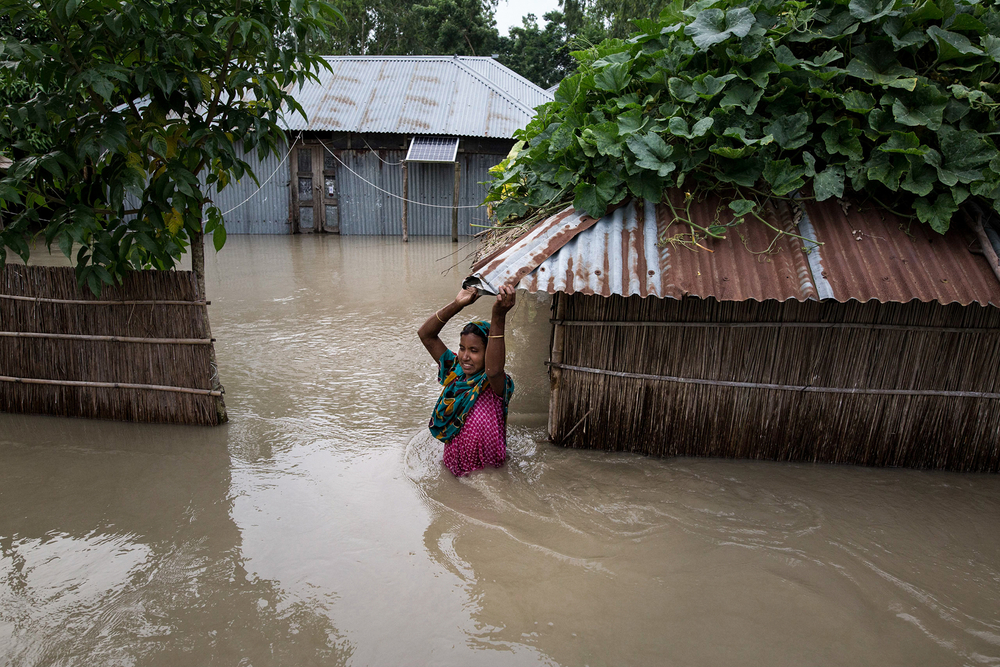
Flood has wreaked havoc in Bangladesh, killing at least 61 people and displacing around 0.8 million people apart from inundating thousands of homes.
The Bangladesh Disaster Management and Relief Ministry, in a statement, informed that around 30 lakh people are still struggling with floodwater.
"This has been the worst flood in two years," the statement added.
"Good part is that the water is gradually receding," the statement further added.
However, as floodwaters have begun to recede, the authorities are now concerned about the possibility of a disease outbreak.
"The risk of an outbreak of water-borne disease is high when the flood recedes and that is why we are setting water treatment plants in the flood-hit areas," wrote The Himalayan Times quoting Shah Kamal, Secretary of the Disaster Management and Relief Ministry, Bangladesh.
It is worth mentioning here that so far around 22 persons have been admitted in various Bangladeshi hospitals after they complained to of diarrhoea, vomiting, fever and other diseases symptoms of which indicate to be water-borne.
Around 700 volunteers and 100 staff of the International Federation of Red Cross and Red Crescent Society are working presently in Bangladesh in various relief operations.
Apart from providing food, drinking water and other medical aid, the Red Cross is also providing financial assistance of 4500 takas per flood-hit family.
Spokesman of the International Federation of Red Cross and Red Crescent Society Raqibul Alam further said that the Bangladesh government has earmarked 45.80 million takas for rebuilding the houses destroyed by the floodwaters.
Preliminary studies show that agricultural production of around $40 million has been destroyed in the floods, however, the number will soar once the water completely recedes and a detailed list is prepared.
The flood destroyed near about 250 bridges, 172 kilometres of roads and breached around 9 kilometres of embankments.
People have taken shelter on highlands which are mostly the high raised railway tracks and the un-breached embankments and highways.
Traffic- both the railway and motor- has almost come to a standstill.
Sources say that even after the water recedes, a large portion of the submerged farmlands will not be suitable for immediate farming as it may take months for it to become farm-worthy.
The Story Mug, a Guwahati-based blogzine, believes in telling stories that matter.